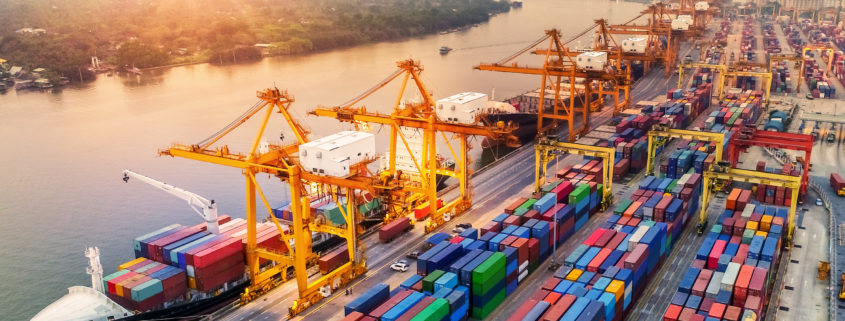Suspension of overseas ag container shipments is blow to US ag community
Specialty Soya and Grains Alliance members were shocked to learn this week that shipments of agricultural products by containers are being discontinued by a major shipping line, effective immediately and for the foreseeable future.
The German international shipping and transportation company Hapag-Lloyd has dropped a bombshell, informing exporters it is suspending overseas ag container shipments from North America, a decision that could cause major hardships within the entire U.S. ag community.
The decision is being driven by hard economics during a time of unprecedented demand for higher-value North American consumer imports by containers from Asia at premium prices. Reports to SSGA are that Hapag-Lloyd has decided it needs to quickly reposition empty containers back to Asian shipping centers, even if it means forgoing hauling critical food and agriculture products back to manufacturers overseas.
SSGA members in the Upper Midwest, including shippers of bulk and identity-preserved (IP) soybeans and specialty grains, note the decision will especially hit exporters hard in the Minneapolis-St. Paul region. The strong Twin Cities market frequently finds itself short of inbound containers to meet demand and has long relied on Hapag-Lloyd’s services to reposition containers for exports.
“Hapag-Lloyd has been one of the most reliable and dependable carriers for rural, inland ag shippers, so this announcement is devastating and shocking,” said Bob Sinner, president of North Dakota-based SB&B Foods and chair of SSGA’s competitive shipping action team. “For those of us in the food soybean arena, we are just coming off a harvest that our overseas food manufacturing customers are anxious and desperate to begin receiving.”
According to available information from the global trade data company Panjiva, as read by SSGA, Hapag-Lloyd delivered 878 shipments of U.S. bulk soybeans at a volume of more than 17,000 twenty-foot equivalent units (TEU) between Oct. 22, 2019 and Sept. 25, 2020 to destinations around the world. The majority went to Japan, Indonesia, Hong Kong, Taiwan and Malaysia, as well as to Thailand and South Korea. Over that same span there have been 172 shipments of IP non-GMO food-grade specialty soybeans at a volume of 780 TEU.
“This disrupts the food supply chain,” Sinner said, noting that consumption of soy foods has been strong throughout the COVID-19 pandemic and that worldwide food inventories are low. “Companies in those countries rely on us for their food manufacturing. We’ve got our new crop harvested and we’re making significant and consistent bookings with carriers to get our products shipped quickly and as soon as possible.”
The move by Hapag-Lloyd poses an ominous sign for U.S. ag exporters if other ocean carriers decide to follow suit or delay ag shipments. SSGA is encouraging Hapag-Lloyd and any other carriers considering similar decisions to reexamine this policy. SSGA will explore all options to work on behalf of its members to try to help resolve this issue and is encouraging exporter members to talk to their shipping representatives.







Leave a Reply
Want to join the discussion?Feel free to contribute!